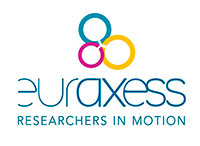Bolsa de TT-II em TI Aplicada a Qualidade de Carne
Level 2-Technical Training Fellowship in IT Applied to Meat Quality
Nº: 2922
Área de conhecimento: Ciência e Tecnologia de Alimentos
Field of knowledge: Food science and technology
Nº do processo FAPESP: 2017/15336-5
FAPESP process: 2017/15336-5
Título do projeto: Desenvolvimento de Equipamento Portátil de Ressonância Magnética Nuclear para Determinação Não Destrutiva da Maciez da Carne Bovina
Project title: Development of portable nuclear magnetic resonance equipment for non-destructive determination of beef tenderness
Área de atuação: Qualidade de Carne
Working area: Meat Quality
Quantidade de vagas: 1
Number of places: 1
Início: 01/07/2019
Start: 2019-07-01
Pesquisador responsável: Fabiane de Souza Costa
Principal investigator: Fabiane de Souza Costa
Unidade/Instituição: Agência Paulista de Tecnologia dos Agronegócios - APTA
Unit/Instituition: Agência Paulista de Tecnologia dos Agronegócios - APTA
Data limite para inscrições: 25/06/2019
Deadline for submissions: 2019-06-25
Publicado em: 04/06/2019
Publishing date: 2019-06-04
Localização: Rodovia Washington Luiz, Km 445, Fazenda Palmeira, São José do Rio Preto
Locale: Rodovia Washington Luiz, Km 445, Fazenda Palmeira, São José do Rio Preto
E-mail para inscrições: fabianedesouzacosta@gmail.com
E-mail for proposal submission: fabianedesouzacosta@gmail.com
-
Resumo
Summary
Um dos objetivos deste projeto é desenvolver uma versão portátil de equipamento de ressonância magnética nuclear (RMN) do tipo unilateral (ou de superfície), capaz de determinar a maciez da carne bovina de um modo não destrutivo, em cortes já embalados para comercialização.
Essa avaliação da maturação objetiva auxiliar os frigoríficos na diminuição do tempo de permanência em câmaras frias dos cortes cárneos destinados à maturação, diminuído assim os gastos com o consumo de energia elétrica pela câmara fria e reduzindo a necessidade de espaço, além de aumentar o fluxo de caixa. Pretende-se também levar ao consumidor a informação da maciez do corte bovino na etiqueta do produto e agilizar sobremaneira a obtenção da maciez de cortes cárneos bovinos no meio acadêmico.
Para isso, será desenvolvido um software que precisará ser abastecido com informações da força de cisalhamento (maciez) dos cortes cárneos, relacionando as medidas tomadas no equipamento e aquelas medidas em texturômetro com lâmina Warner Blatzer acoplada. O desenvolvimento do projeto implica a superação de uma série de desafios técnicos-científicos.
O bolsista selecionado estará envolvido no preparo das amostras, maturação e determinação da maciez da carne por método tradicional e pelo equipamento; tabulação dos dados; calibração do equipamento; e validação do software.
A vaga é voltada para alunos do último ano ou egressos do nível médio técnico, sem reprovações em seu histórico escolar e sem vínculo empregatício. Confira os valores para bolsas técnicas FAPESP no endereço www.fapesp.br/3162.
The objective of this project is to develop a portable version of unilateral (or surface) nuclear magnetic resonance (NMR) equipment, capable of determining the tenderness of the beef in a non-destructive way, in already packaged cuts for commercialization.
This evaluation of the objective aging will help the slaughterhouses in the reduction of the time of stay in cold chambers of the meat cuts destined to the aging, thus reducing the expenses with the consumption of electric energy by the cold chamber and reducing the need of space, besides increasing the cash flow. The project also intends to convey to the consumer the information on the tenderness of the beef cut on the product label and boost the attainment of the softness of bovine cuts in the academic environment.
For this, a software will be developed that will need to be supplied with information on the shear force (tenderness) of the meat cuts, relating the measurements taken in the equipment and those measurements in a texturometer with a Warner Bratzler blade attached. The development of the project implies the surmounting of a number of technical-scientific challenges.
The selected candidate will be involved in the preparation of samples, aging and determination of meat tenderness by traditional method and equipment; tabulation of data; calibration of equipment; and software validation.
This opportunity is directed to undergraduates at their bachelor year or students hailing from technical highschool with no failures on their academic records. Please visit www.fapesp.br/3162 for information regarding values for FAPESP technical fellowships.
-
Enviar
Oportunidade - Oportunidades Abertas Open Opportunities
-
Fellowships Opportunities
